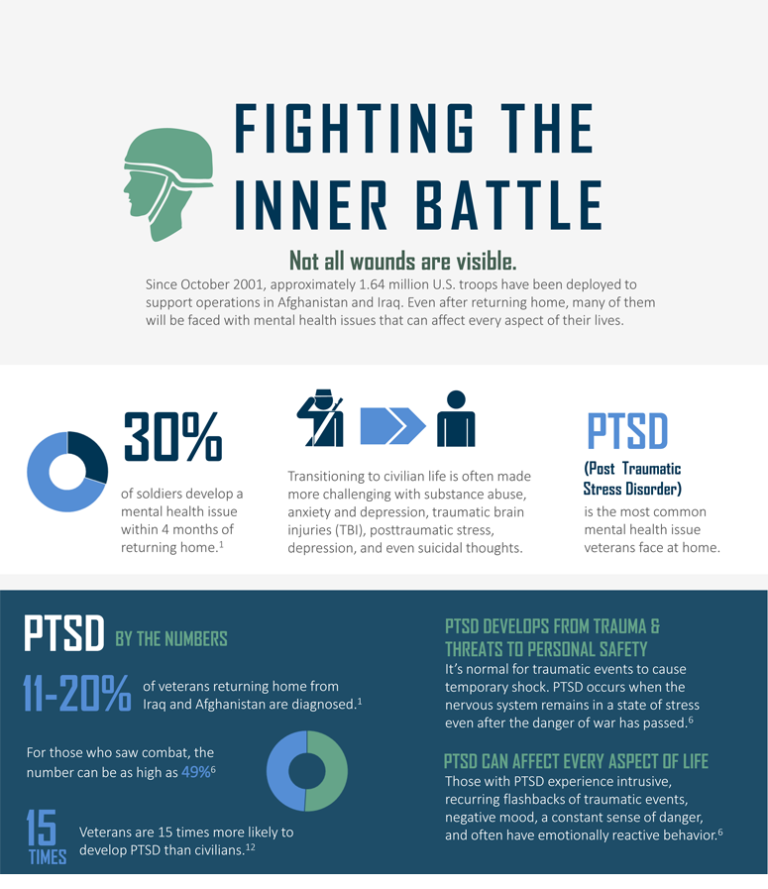

Facing the Challenges of PTSD
A veteran mom or dad who returns home with PTSD (post-traumatic stress disorder) also returns home with new relationship challenges for his or her children. A child may feel as though the parent who departed for duty several months ago is not the same parent who recently arrived back home.
PTSD alters the entire person, from their temperament to their ability to self express. PTSD also strains relationships between parents and children. How do we best explain these PTSD implications to children? How does a veteran return to life as a parent?
The first step in learning how to address the effects of PTSD in your family is to better understand PTSD. Here is just a snapshot of the inner battle your veteran family member may be facing.

Source: www.vehiclesforveterans.org/mental-health-awareness/
Explaining PTSD to Your Children
The veteran with PTSD is left with lasting symptoms – nightmares and social-setting avoidance are just a couple examples. Studies on Vietnam veterans show that the negative effects of PTSD are not limited to the victim alone, but also impact the spouse and children. Family members of someone with PTSD could manifest sympathy, negative feelings, avoidance, depression, anger, guilt, and health problems. On top of that, family members may feel hurt, alienated, or discouraged because of the PTSD sufferer’s condition.
Both victim and family have a challenging hill to climb on the way to recovery. The veteran not only has his own symptoms to address, but also has the added task of helping his children cope.
Children Have a Difficult Time Understanding the Whys
Why doesn’t mom like playing anymore? Why is dad acting like this? Why doesn’t mom act like this anymore? Why does dad cry all the time? Why is mom always so angry?
Here are some specific needs a family affected by PTSD should address in a child, along with practical steps to achieve positive outcomes:
- Physical needs. Maintain meal schedules, school lunches, and a nightly sleep routine.
- Emotional needs. Encourage open communication, establish a relationship built on trust, and make time for leisure activities.
- Social development needs. Let your child’s friends come over, participate in family outings, and be actively involved in your child’s extracurricular activities.
- Intellectual development needs. Read with your child, help her with homework, and take her to libraries and museums.
How Veterans with PTSD Return to Normal Life as a Parent
Families struggling with PTSD want to live normal lives. But what are the steps involved to achieve this?
1. Know the symptoms that the veteran with PTSD may experience. These include:
- Re-experiencing trauma. Day and night dreams re-create traumatic events, which lead to grief, guilt, fear, and anger.
- Avoidance and numbing symptoms. Certain trigger environments are avoided.
- Hyperarousal symptoms. This includes anxiety, insomnia, and being easily startled.
2. Understand that managing symptom may be a lifelong journey.
Additional Resources:
http://www.ptsd.va.gov/public/family/effects-ptsd-family.asp
https://www.myptsd.com/c/threads/how-does-ptsd-affect-family-life-especially-for-families-with-children.13745/
http://www.ptsd.va.gov/professional/treatment/children/pro_child_parent_ptsd.asp